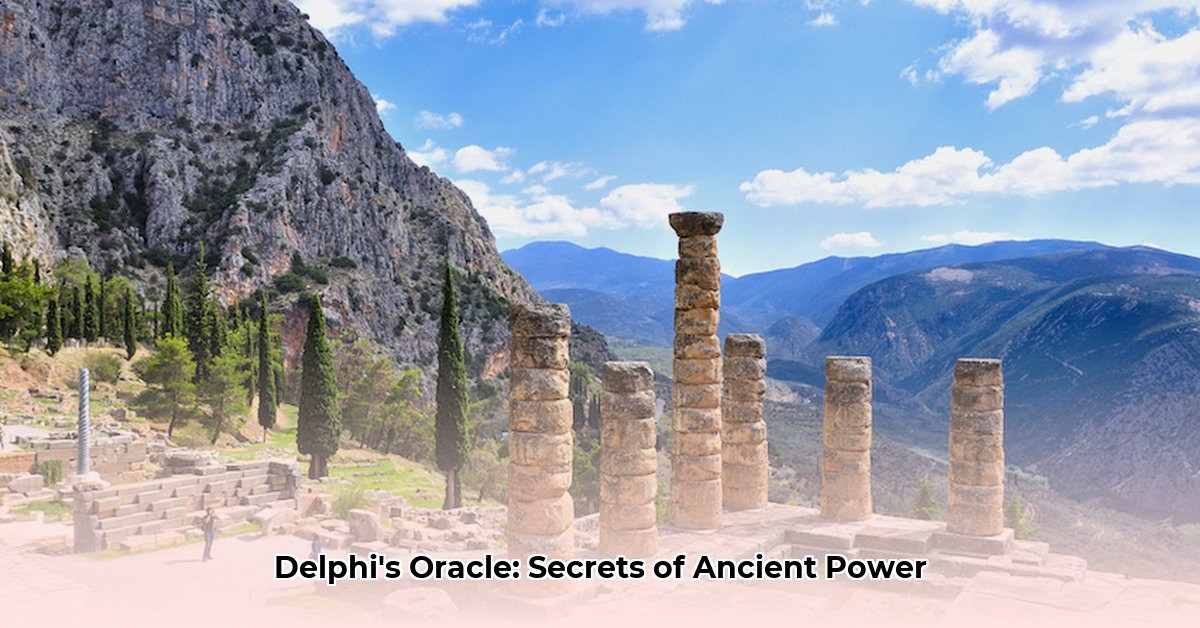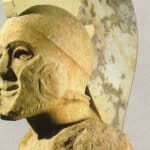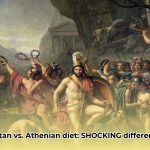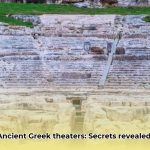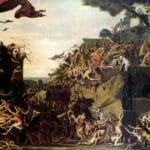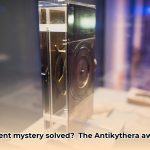Imagine a world where leaders turned to the divine for direction, not just on matters of faith, but on critical decisions of state – from declaring war to choosing a ruler. This was ancient Greece, and at its heart lay the Oracle of Delphi. More than just a fortune teller, Delphi’s pronouncements carried immense weight, shaping the actions of kings and generals and influencing the course of history. For more on ancient Greek governance, see this article on Athenian exile. In this exploration, we’ll delve into the mechanics of this powerful oracle, unraveling how its often-enigmatic messages were interpreted (and, at times, manipulated), and assessing the true extent of Delphi’s influence on the ebb and flow of Greek power. Prepare to uncover a compelling narrative of politics, warfare, and the enduring human quest for divine insight—a story more intricate and captivating than you might expect.
The Oracle of Delphi in Ancient Greek Society: A Nexus of Power and Prophecy
Delphi’s profound influence on ancient Greek civilization
Journey back in time to ancient Greece, where, nestled among the majestic mountains, the Oracle of Delphi wielded an almost mythical influence over the lives of its people. For centuries, kings, generals, and ordinary citizens alike flocked to this sacred sanctuary, seeking guidance from the Pythia, the priestess who delivered the Oracle’s pronouncements. But how much of this influence stemmed from genuine prophecy, and how much was the result of shrewd political calculation? This enduring question has intrigued historians for ages, and we will delve into its depths, examining the strategic ambiguity and the pervasive influence of divine authority.
Delphi’s Ambiguous Voice: Separating Fact from Myth
Analyzing historical accounts and archaeological discoveries
The Oracle’s importance in ancient Greek society is irrefutable. Its pronouncements shaped major political decisions, religious beliefs, and military strategies. Consider it the ancient world’s version of a highly sought-after political consultant, albeit one claiming direct communication with the gods. Archaeological excavations provide clear evidence of Delphi’s prominence, with the remnants of the temple and surrounding structures revealing a high volume of visitors and offerings. However, the accuracy of the prophecies is where the historical debate intensifies, with many questioning the extent of the Oracle’s actual versus perceived influence.
The Symbiotic Relationship Between Politics and Prophecy
Legitimizing political agendas and exploiting divine pronouncements
The Oracle’s pronouncements were more than mere predictions; they were a potent tool for legitimizing political decisions. Imagine a ruler facing a difficult choice—whether to wage war, ratify a treaty, or implement unpopular reforms. An endorsement (or a conveniently interpreted ambiguous statement) from Delphi could sway public sentiment, garner widespread support, and quell opposition. It was akin to receiving a seal of approval from an immensely powerful, albeit enigmatic, authority.
This artful fusion of religion and politics was a hallmark of Delphi’s influence. Some historians posit that astute politicians skillfully utilized, and at times even manipulated, the Oracle’s pronouncements to advance their own agendas. Was this a calculated scheme? Or was it merely an opportunistic exploitation of ambiguous prophecies that could be interpreted to suit various objectives? It’s a classic chicken-and-egg dilemma, and determining which came first is a formidable challenge.
Warfare Under Divine Auspices: Strategy or Superstition?
Examining the use of cryptic language in military campaigns
Delphi’s influence extended even to military strategy. Before embarking on a campaign, Greek commanders often sought the Oracle’s counsel. The responses, frequently delivered in famously cryptic language reminiscent of riddles wrapped in enigmas, were then interpreted by the priests at Delphi. These interpretations subsequently informed military decisions. Consider the Battle of Salamis, where the Oracle advised the Greeks to trust in their “wooden walls,” which was interpreted as their ships, leading to a decisive naval victory against the Persians.
But did these prophecies truly influence the outcomes of battles and wars? While some instances appear to align with the prophecies, establishing definitive conclusions remains challenging. The inherent ambiguity of the pronouncements makes it difficult to conclusively prove cause and effect. For example, a vague prediction of victory could be easily spun as a successful outcome, regardless of the events that transpired. It is plausible that these pronouncements boosted morale, but it is far less certain whether they dictated strategic outcomes. In all likelihood, it was a confluence of factors, with the Oracle serving as just one component. Could the priests of Delphi have had a vested interest in certain outcomes?
Delphi’s Enduring Legacy: A Beacon of Ambiguity and Intrigue
Philosophical foundations and their influence on Western civilization
Delphi’s influence did not wane with the decline of classical Greece. The enigmatic nature of its prophecies and the philosophical maxims associated with the Oracle—such as “Know thyself” and “Nothing in excess”—continue to shape Western thought and culture. The very ambiguity of the pronouncements fostered philosophical contemplation and debates that still resonate today. The legacy of Delphi extends beyond mere prophecy; it encompasses the profound impact of religious belief interwoven with the fabric of political power and its enduring influence on history, shaping political landscapes for centuries to come.
Unresolved Questions: Ongoing Research and New Discoveries
Evaluating ongoing uncertainties and innovative archaeological methods
Even in the modern era, numerous mysteries surrounding Delphi persist. The precise nature of the “vapors” that purportedly induced the Pythia’s trance-like state remains a subject of debate. Was it a naturally occurring phenomenon or something more mystical? Some experts propose it may have been a naturally occurring hydrocarbon gas, while others advocate for alternative theories.
The extent to which the priests influenced interpretations, either consciously or unconsciously, is another topic of ongoing research and debate; some scholars suggest that the priests held significant sway in shaping the final message. These unresolved questions only add to the enduring allure of Delphi. Future research employing innovative archaeological methods and techniques in historical linguistics may yield further insights into Delphi’s secrets. The mysteries surrounding Delphi continue to captivate and challenge scholars, inspiring a new generation of researchers to delve deeper into this fascinating enigma.
Reflecting on Delphi’s Complex History
Analyzing ongoing discussions and diverse perspectives
The Oracle of Delphi’s role in ancient Greek politics and warfare was intricately intertwined with religious belief, political strategy, and the inherent ambiguity of prophecy. Its influence was undeniably significant, but the extent to which this influence was divinely inspired versus the product of human interpretation is likely to remain a subject of ongoing discussion and fascination. Further investigation into the historical record and the archaeological evidence may one day provide more definitive answers. In the meantime, the mysteries of Delphi continue to pique our curiosity and remind us of the complex interplay between belief, power, and the human experience throughout history.
Exploring how the Oracle of Delphi Shaped Ancient Greek Political Decision-Making
Examining how divinity Influenced governance In ancient Greece
The Oracle of Delphi, nestled at the heart of ancient Greece, was more than just a religious site; it was a formidable political player. Its pronouncements, delivered by the Pythia in a trance-like state, shaped destinies and ignited wars. But how exactly did these cryptic prophecies influence political decision-making? Let’s examine the Oracle’s sway over political dynamics and divine consultations in ancient Greece.
The Twofold Impact of the Oracle: Guidance and Restraint
Analyzing ethical support and strategic war prevention
The Oracle’s influence was not always direct. Leaders often sought guidance on pivotal matters, such as military campaigns, alliances, and internal conflicts. A positive prophecy could boost morale and galvanize support; a negative one could trigger hesitation or even a change of plans. For instance, a favorable prophecy from Delphi could embolden a king to initiate an ambitious conquest, thereby expanding his territory and influence. Conversely, a warning from the Oracle might have averted a costly, ill-fated war. How did Delphi’s Oracle prophecies influence ancient Greek political decision-making? The answer, as we’ll see, bears many sides.
Unraveling the Enigma: Ambiguity as a Source of Power
Considering shaping prophecies and adapting to adversity
The Pythia’s pronouncements were notoriously ambiguous. This ambiguity, however, was integral to the Oracle’s power. The pronouncements weren’t simply yes or no answers; they were riddles, open to multiple interpretations, enabling political figures to mold their meaning to align with their own agendas. A shrewd leader might transform a discouraging prophecy into a call to action, instilling resilience in the face of adversity. Did this ambiguity empower the Oracle, or did it undermine its authority, potentially rendering it unreliable in the eyes of the people?
Case Studies: The Oracle in Action
Assessing political influence in shaping alliances and military strategies
Let’s examine specific instances. Before the Greco-Persian Wars, several city-states consulted Delphi. The responses they received undeniably shaped alliances and strategies. Did the Oracle’s predictions accurately forecast the outcomes of these battles? Did they inspire or hinder military preparations? History provides numerous examples, although the influence of prophecy is often intertwined with other political and logistical factors. Distinguishing this complex interplay remains a formidable challenge for historians.
The Oracle’s Reach: Beyond the Battlefield
Analyzing impacts on laws, governance, and personal choices
Delphi’s influence was not limited to warfare. It extended to internal affairs, affecting laws, governance, and even personal choices. Rulers who asserted divine authorization through Delphi’s pronouncements bolstered their legitimacy and consolidated power. Citizens, too, might seek the Oracle’s advice on matters of life and death, faith and governance. This influence on daily life further cemented the Oracle’s significance in the political landscape.
The Oracle’s Decline and Enduring Significance
Considering religious beliefs and mankind’s search for higher knowledge
Despite its prestige, the Oracle of Delphi’s influence waned as Christianity rose. The shift in religious beliefs gradually diminished the Oracle’s sway. Yet, the Oracle remains a fascinating figure in history. It serves as a powerful reminder of the intricate interplay between religion, politics, and the human desire for knowledge of the future.
Key Takeaways:
- The Oracle of Delphi served as a pivotal player in ancient Greek politics.
- Prophecies significantly impacted political decisions, influencing wars and internal affairs.
- Leaders strategically interpreted ambiguous oracles to bolster their positions or justify actions.
- The Oracle’s influence declined with the rise of Christianity but left a lasting cultural impact.
Delphi Oracle Rituals: Investigating Ancient Practices and Interpretations
Examining religious rituals and impact on politics
The Oracle of Delphi was not merely a mystical marvel; it was a powerful political force in ancient Greece. Its pronouncements, delivered by the Pythia in a trance-like state, shaped the destinies of cities and kings. But how did this influence work? Let’s delve into the captivating realm of Delphi Oracle Rituals: A Comparative Study of Practices and Interpretations Across Ancient Greece, exploring sacred sites and the significance of ritual purity.
The Pythia’s Enigmatic Pronouncements: Ritual and Interpretation
Deciphering enigmatic utterances and influencing interpretations
The Pythia’s pronouncements were not clear-cut predictions. They were often cryptic, ambiguous riddles. This ambiguity was a key element of the ritual. The priests, highly trained in interpreting these enigmatic utterances, played a crucial role. Their interpretations often influenced how the prophecies were understood and acted upon by those seeking guidance. It was a complex game of interpretation, where the meaning shifted depending on who was listening and how they chose to perceive it. Was this intentional obfuscation or simply a byproduct of the ritualistic environment? Scholars continue to debate.
Ritual Practices: A Holistic Comparison
Analyzing sacrifices and cleansing ceremonies emphasis
The rituals surrounding the oracle varied over time and across different city-states. Some involved elaborate sacrifices, while others focused on purification rites. But a common thread woven throughout these differing practices was the emphasis on ritual purity. Consultants underwent cleansing ceremonies before approaching the Pythia, underscoring the sacred nature of the process. The site, located in a geologically active area, might have added to the sense of awe and mystery. Did the environment itself contribute to the prophetic experience?
Influence on Politics and Military: More Than Just Fortune-Telling
Seeking divine counsel during periods of both war and peace
The Oracle’s influence was not confined to personal matters. City-states frequently sought divine counsel on issues of war and peace. Consider the Athenian expedition against Syracuse. Did the Oracle’s ambiguous message contribute to its disastrous outcome? This suggests that the Oracle’s influence extended far beyond personal fortunes, making it a critical player in the political and strategic landscapes of ancient Greece. Were leaders swayed more by faith or strategic advantage, and could those two concepts be separated at all? The answer is likely complex and varied from leader to leader.
The Consequence of Interpretations
Evaluating human agency and potential for bias
The interpretation of the Pythia’s pronouncements was a highly significant factor influencing their impact. Different interpretations could lead to completely different actions. This crucial step in the process reveals how much human agency and bias shaped the apparent will of the gods. What would have happened if a different priest had been available to interpret the Oracle’s message? This question highlights the human element interwoven in every aspect of the Delphi experience.
The Oracle’s Enduring Resonance
Evaluating greek heritage impacts and modern day parallels
The legacy of the Oracle of Delphi extends far beyond antiquity. Its impact on Greek culture, politics, and religion is undeniable. The ambiguity of its pronouncements continues to fascinate scholars today, provoking questions about the power of suggestion, the role of interpretation, and the human need for guidance from a higher power. The Oracle’s influence resonates even in modern-day society. We find parallels in contemporary contexts, from political spin to psychological interpretations of ambiguity.
Key Takeaways:
- The Oracle of Delphi’s pronouncements were famously ambiguous, requiring skilled interpretation.
- Ritual purity was central to the consultation process, enhancing the sacred aura.
- The Oracle’s influence extended to major political and military decisions.
- Varied interpretations of prophecies led to diverse courses of action.
- The Oracle’s legacy continues to inspire studies in religion, psychology, and political science.
Delphi’s Prophecies: Impact on Military Strategies in Classical Greece
Analyzing interconnections of ancient religion, politics, and warfare
Key Takeaways:
- The Oracle of Delphi played a pivotal role, albeit often shrouded in ambiguity, in shaping ancient Greek military strategies.
- Cryptic pronouncements issued by the Pythia were interpreted to influence crucial decisions.
- The interpretation of prophecies frequently involved political maneuvering and strategic ambiguity.
- The Oracle’s power originated from its perceived divine authority and its capacity to influence decision-making.
- The legacy of Delphi’s influence endures, captivating historians and scholars alike, and inciting enduring debate.
Unveiling the Pythia: Voices Shaping Armies
Assessing political impact beyond fortune telling
Envision a world where the destiny of nations hinged on the pronouncements of a woman in a trance. This was the reality for many ancient Greek city-states. Delphi’s Prophecies and their Impact on Military Strategies in Classical Greece are essential when hoping to understand the complex relationship between religion, politics, and warfare. The Oracle at Delphi was not merely a source of fortune-telling; it was a significant political actor.
Leaders sought its guidance before embarking on military campaigns, hoping to decipher omens that foretold victory or defeat. How much weight did they actually place on these pronouncements? Were they genuinely influenced, or was it more of a sophisticated form of political theater?
The Art of Ambiguity: A Powerful Tool
Tailoring vague messages strategically
The prophecies themselves were rarely straightforward. The Pythia’s pronouncements were often laden with metaphors and symbolism. This ambiguity was not a flaw; it was a deliberate feature. It allowed for multiple interpretations, enabling the message to be tailored to support prevailing political winds. A shrewd general could twist a vague prediction to justify his actions, thereby bolstering his authority. Was this manipulation, or simply adroit political sense?
Case Studies: Delphi’s Influence on Ancient Conflicts
Analyzing impact on military campaigns and potential consequences
Consider the Spartan campaign against Athens. Did Spartan leaders rely solely on military calculations, or did they seek divine approval at Delphi beforehand? The historical record is incomplete, but the very fact that they sought prophecy underscores its perceived importance. Similarly, Athenian leaders likely consulted the Oracle before launching significant naval expeditions. Every military engagement carried the potential for drastic consequences; a consultation with Delphi was an attempt to mitigate uncertainty.
The Oracle’s Decline: A Transformation of Power Dynamics
Analyzing religious and political shifts towards power and authority
The Oracle’s influence gradually waned with the changing religious and political climate of the Hellenistic and Roman periods. The very nature of prophecy itself underwent a transformation. The rise of Christianity, with its more centralized and less ambiguous theological system, eventually eclipsed Delphi’s significance. The decline of the Oracle mirrors shifts in the Greek polis’s reliance on tradition, showcasing altered perspectives toward power and authority.
Interpreting the Oracle’s Legacy
Considering political maneuvering intertwined with religion
The Oracle of Delphi’s legacy extends far beyond ancient Greece. It serves as a compelling example of the powerful interplay between religious belief, political power, and military decision-making. We are left to contemplate the extent of the Oracle’s real influence and the role of human interpretation in shaping events. Was it truly prophecy, political maneuvering, or a potent mix of both? The ambiguity endures, mirroring the enigmatic pronouncements of the Pythia herself.
- Understand the Dunning-Kruger Effect: Why Incompetent People Think They’re Experts: Gain Self-Awareness - August 1, 2025
- Ignaz Semmelweis: The Doctor Fired for Handwashing: A Public Health Tragedy - August 1, 2025
- Unlock Your Memory: Spaced Repetition: The Scientific Trick to Remembering Information Forever: Learn Effortlessly - August 1, 2025
